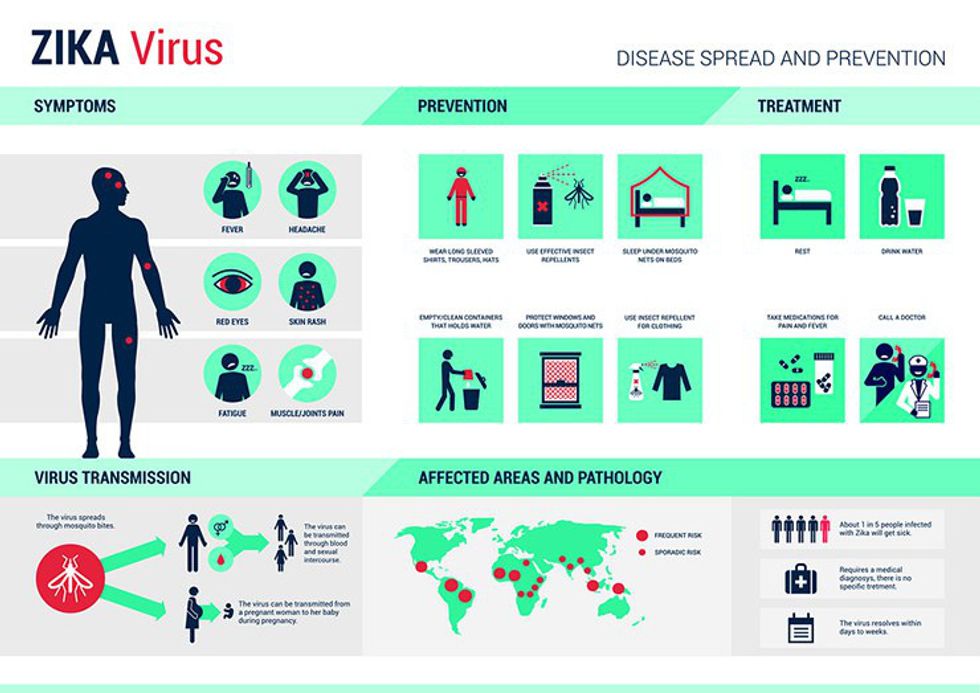Earlier this year, the Centers for Disease Control (CDC) announced the first known cases of Zika virus in the continental United States. Today, there are over 900 reports across the U.S. and its territories.
As the Northern Hemisphere quickly approaches summer, the risk of catching Zika greatly increases. In this article, I hope to briefly explain what exactly Zika virus is, how to recognize its symptoms, and the best methods for both prevention and treatment.
History
Zika virus is not a new phenomenon. In 1947, the virus was discovered in the Zika Forest of Uganda. From Africa, Zika virus spread throughout southern Asia, until recently reaching the Americas.
Contagion and Symptoms
Zika virus spreads primarily through mosquitos, particularly from the Aedes species. Physical signs of the virus are often extremely mild, with most people infected with Zika reporting little to no symptoms. Fever, joint pain, headaches, and red eyes are a few of the known indicators. Due to its easily contagious nature and its mild symptoms, the virus spread undetected with little international panic.
Why is it important now?
In order to survive, the virus needed to mutate. The recent concern over Zika virus in the Americas is that it now causes microcephaly, a birth defect of the brain, in the fetuses of pregnant women. When Brazil questioned the spike in its microcephalic births, it was discovered that Zika virus was to blame.
Zika Virus remains relatively harmless to many, but this new mutation leaves pregnant women and their unborn children at risk. With the virus spreading rapidly throughout Latin America, the United States, especially southern States, should treat Zika with serious concern.
Prevention and Treatment
There is currently no vaccine for Zika virus. To prevent yourself from getting this virus, take the same precautions you would to prevent mosquito bites. Below are some preventive methods to combat Zika virus.
To treat Zika virus, it is important to rest and stay hydrated. If you are infected with the virus, or believe you are infected, contact your healthcare provider. Like most viruses, early detection helps considerably.
If you know anyone who is pregnant, please remind them of this virus and petition them to take preventative measures. From conception to birth, Zika could cause serious damage to the fetus, and even slight caution could greatly protect the unborn child.
To Recap
Sources: Centers for Disease Control and Prevention (CDC); World Health Organization (WHO)






















